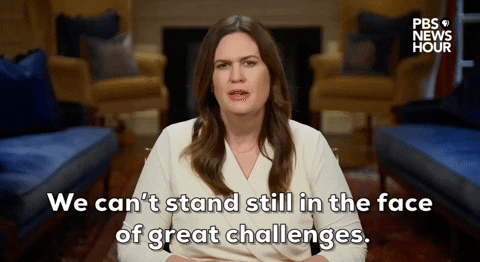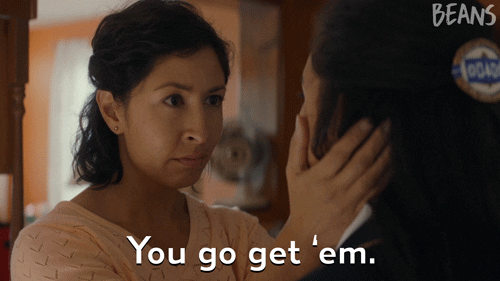Unveiling Female Autism: Challenges and Strengths
Talk Nerdy To Me®’s @staffwriter
In the realm of autism, the unique experiences of women often remain shrouded in mystery. While autism is commonly associated with boys and men, it is crucial to shed light on the challenges and strengths that women with autism encounter on their journey. By understanding the distinct nature of female autism, we can foster inclusivity, support, and empowerment for these remarkable individuals.
Understanding Autism Spectrum Disorder (ASD)
Autism spectrum disorder is a complex neurological condition that affects social interaction, communication, and behavior. Despite its diverse manifestations, there are several misconceptions and stereotypes surrounding this condition. It’s essential to dispel these myths and gain a clearer understanding of the true nature of autism. Furthermore, exploring the prevalence of autism in females is vital to grasp the scope of its impact on women’s lives.
Diagnostic Challenges in Females
Unfortunately, diagnostic challenges plague the identification of autism in females. Gender bias within the diagnostic process often leads to underdiagnosis or misdiagnosis of girls and women. The manifestation of autism in females differs from the stereotypical male presentation, making it more challenging to recognize the condition. The camouflage effect, characterized by masking and social mimicry, further complicates the diagnostic journey for females.
Unique Challenges Faced by Women with Autism
Women with autism encounter a distinctive set of challenges that profoundly affect their daily lives. Social difficulties and friendship issues hinder the formation of meaningful connections, leaving many women feeling isolated and misunderstood. Sensory sensitivities and overload exacerbate their sensory experiences, making the world a cacophony of overwhelming sensations. Executive functioning challenges add an additional layer of complexity, impacting organizational skills, time management, and planning abilities. Moreover, co-occurring mental health conditions frequently accompany autism in females, requiring comprehensive support and management strategies. Navigating educational and occupational environments presents yet another set of hurdles, as women with autism often face unique barriers in these domains.
Strengths and Unique Abilities of Women with Autism
Within the challenges lie remarkable strengths and unique abilities that women with autism possess. Their exceptional attention to detail enables them to notice subtleties and nuances that often escape others. Intense focus and specialization in areas of interest grant them a deep understanding and expertise in specific subjects. Enhanced pattern recognition and memory are among their cognitive assets, empowering them to perceive connections and recall information with exceptional precision. Creative thinking and problem-solving skills often flourish in the minds of women with autism, leading to innovative and unconventional approaches to challenges. Furthermore, their innate empathy and compassion contribute to creating supportive and inclusive communities.
Coping Strategies and Support for Women with Autism
Navigating the complexities of life with autism requires effective coping strategies and a robust support system. Encouraging self-awareness and self-advocacy empowers women with autism to recognize their needs, communicate effectively, and assert their rights. Building a supportive network of understanding individuals, including family, friends, and professionals, fosters a sense of belonging and encouragement. Therapy and counseling options tailored to the unique needs of women with autism provide valuable tools for personal growth and emotional well-being. Developing effective coping mechanisms allows individuals to manage stress, sensory overload, and anxiety. Promoting mental health and well-being through self-care practices, mindfulness, and stress reduction techniques is crucial for leading a fulfilling life.
Relationships and Intimacy
Understanding the intricacies of romantic relationships and dating for women with autism is paramount in fostering healthy and fulfilling connections. Challenges arise in forming and maintaining relationships due to communication barriers and difficulties in interpreting social cues. Developing effective strategies and seeking professional guidance can help bridge these gaps and cultivate meaningful relationships. Nurturing healthy relationships and intimacy requires open communication, empathy, and a shared commitment to understanding and acceptance.
Parenting and Family Dynamics
Parenting a child with autism poses unique challenges for women. Managing household routines and accommodating sensory needs become integral parts of daily life. Balancing self-care and caregiving responsibilities is essential to prevent burnout and ensure the well-being of both the parent and the child. Establishing support systems and seeking community resources provide families with the necessary tools to navigate the challenges posed by female autism.
Education and Employment
Women with autism face distinctive obstacles within the education system. Navigating these challenges requires accommodations that promote inclusivity and cater to individual learning styles. Career exploration and finding the right fit in the workforce can be a transformative journey for women with autism. Overcoming workplace challenges and making informed decisions regarding disclosure are crucial steps toward building successful and fulfilling careers.
Celebrating Neurodiversity and Raising Awareness
Promoting acceptance and understanding of female autism is a collective responsibility. Challenging stereotypes and fostering inclusivity contribute to creating a society that embraces neurodiversity. Advocacy and raising awareness campaigns raise the visibility of women with autism, shedding light on their experiences and needs. Resources and organizations dedicated to supporting women with autism provide valuable information, guidance, and community connections.
In conclusion, unveiling the challenges and strengths of women with autism is a crucial endeavor that promotes acceptance, support, and empowerment. By understanding the unique aspects of female autism, we can foster inclusive communities and provide the necessary resources to facilitate personal growth and well-being. It is our collective responsibility to create a world that embraces neurodiversity and celebrates the remarkable individuals who navigate life with autism.



